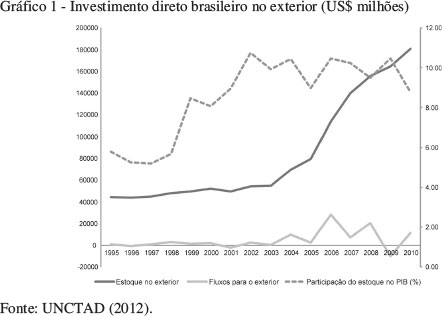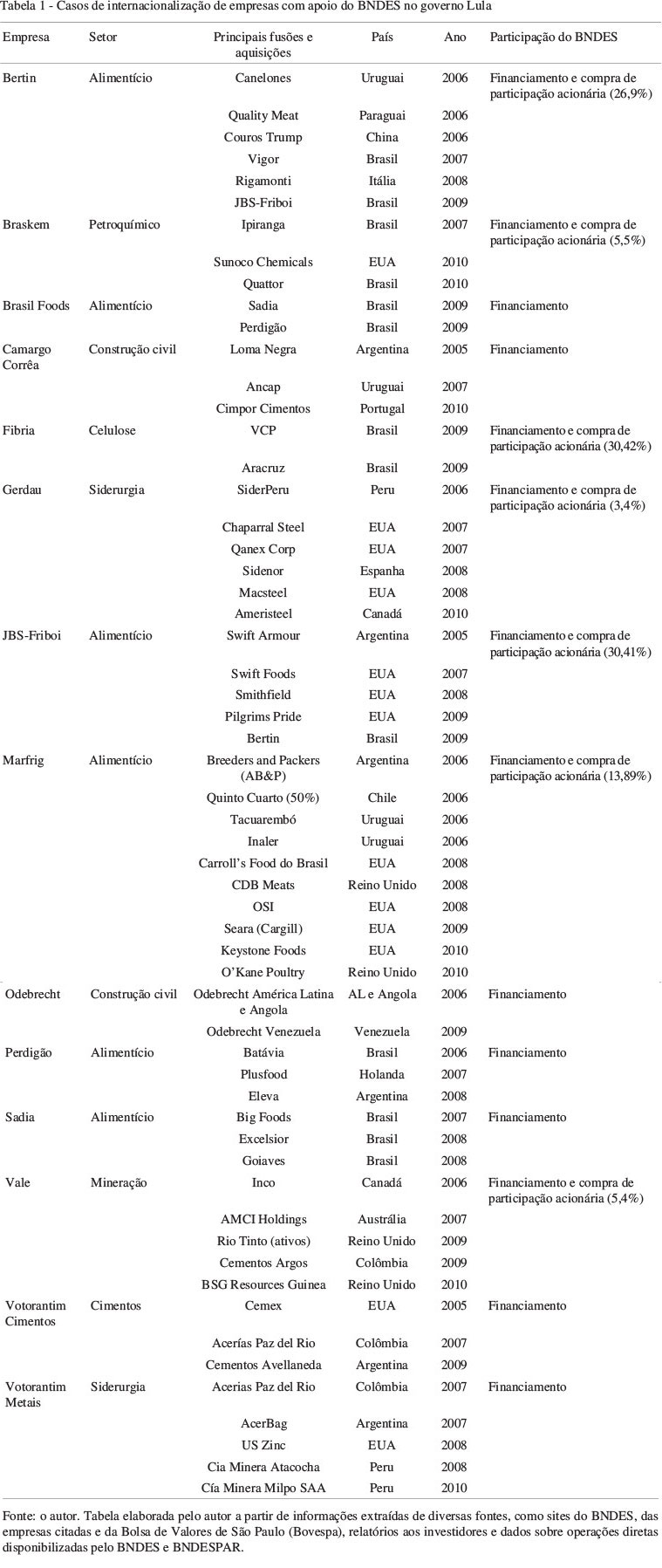This paper analyzes the political economy of the internationalization process of Brazilian private companies occurred during Lula administration (2003-2010). Since 2005, there was an expansion of Brazilian foreign direct investment abroad, as a result of a federal government policy intended to form large corporations able to compete internationally. Major mergers, acquisitions and investment projects abroad were financed by public funds under the industrial policy operated by National Bank of Economic and Social Development (BNDES), the main state bank to support the private sector in the country. An important feature of this movement was the focus on sectors in which Brazil is already competitive, as the labor and natural resources intensives sectors, in conflict with guidelines established by the same industrial policy of the Lula government, which advocated the support of more technology intensive industries. From the empirical analysis of internationalization cases, it is argued that this occurred because the internationalization policy was guided by short-term demands of private economic groups. Using the institutional approach of "varieties of capitalism", it is concluded that the action of the BNDES was path dependent, in the sense that depended on projects of immediate viability. It is inferred from the result that wider institutional characteristics of the Brazilian economy leave the industrial policy of the federal government subject to short-term demands of the private sector.
firm's internationalization; industrial policy; BNDES; varieties of capitalism; entrepreneurs






